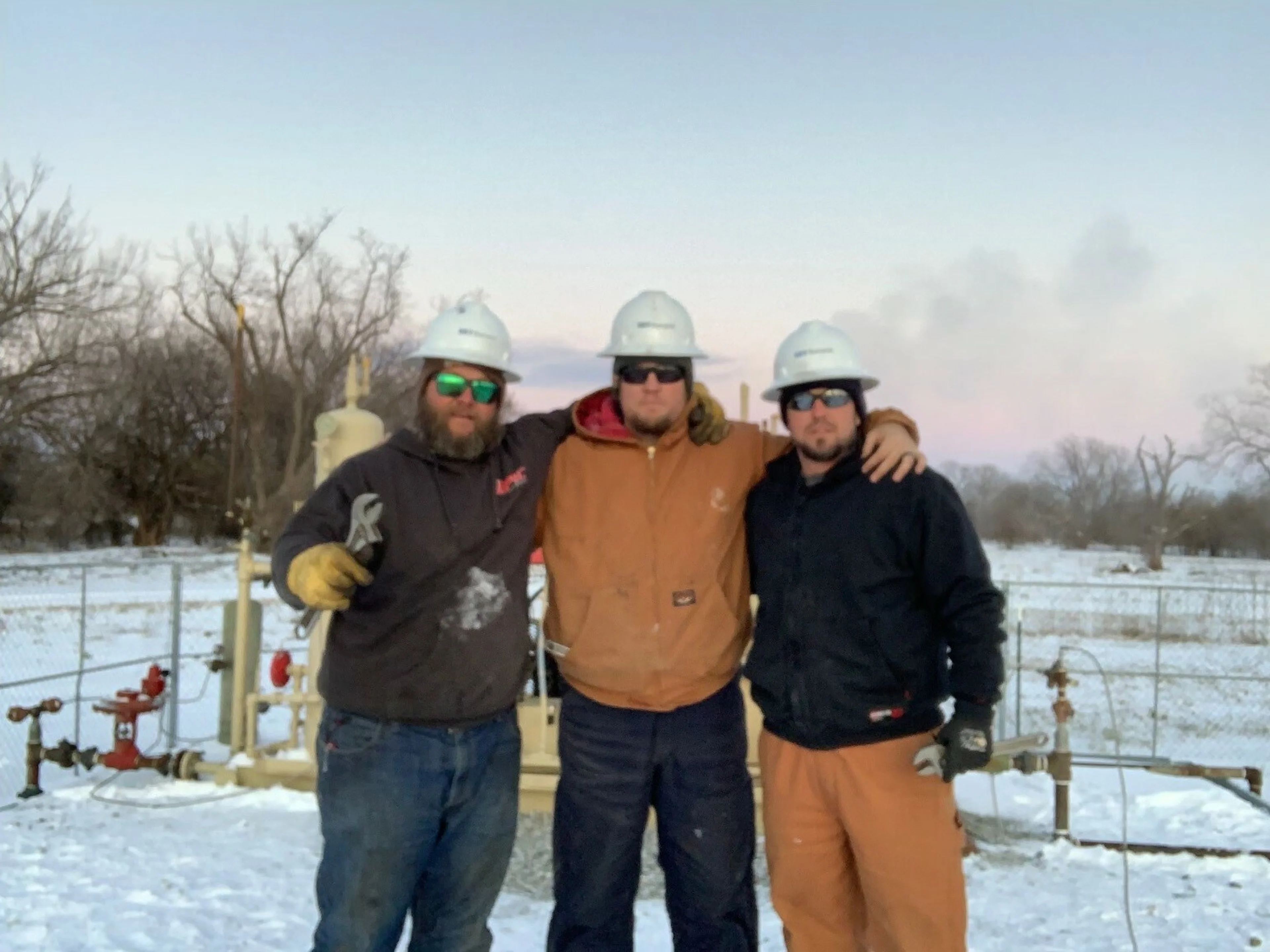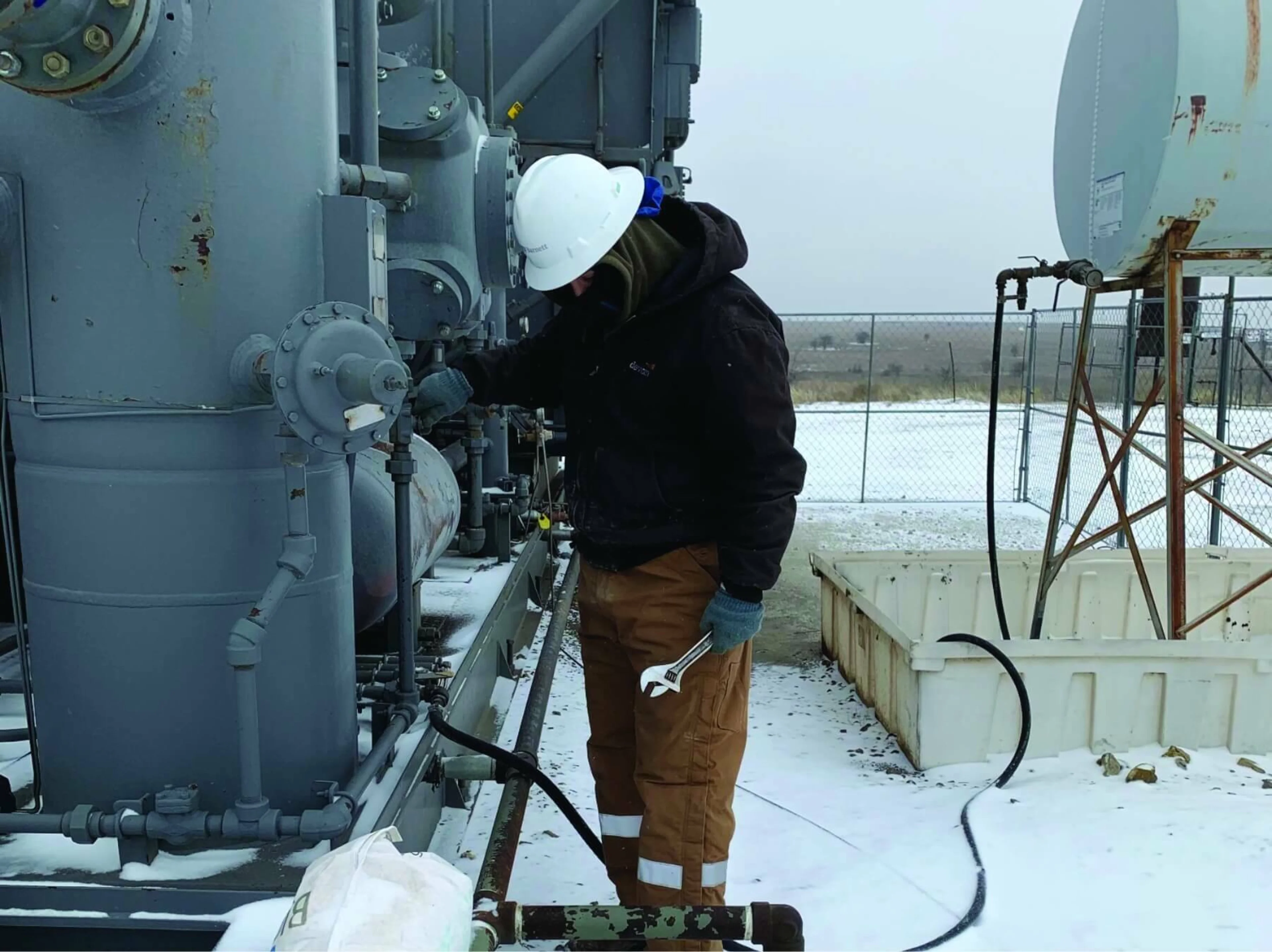There are times when your resiliency is tested
In February 2021, the state of Texas experienced a once-in-a-lifetime winter storm that resulted in record-breaking low temperatures, significant snow and ice accumulation and catastrophic power blackouts. A survey conducted by the University of Houston (UH) Hobby School of Public Affairs in mid-March of 2021 found that more than two out of three, or 69 percent, of Texans lost power at some point during the storm, and almost half of the state’s population had disruptions in water service. Across the state, 246 people died as a result of the storm, and the Texas Comptroller’s office estimated that the financial fallout landed somewhere in the range of $80 to $130 billion.

As the winter weather moved in and natural gas and electricity demand skyrocketed, BKV quickly sprang into action to help keep the community’s lights on.
Many of our employees, even those who do not normally work in the field, were in the field as long as they could each day, working hand-in-hand with their supervisors and colleagues, defrosting lines, repairing equipment and ensuring as much gas production as possible. The natural gas we produced during the storm was sold to Atmos, and other power generators and deliverers, without negotiating any contracts in an effort to maintain the power generation and keep lights on across North Texas and the entire state. While working in the field, our employees supported community neighbors by clearing driveways of snow for elderly landowners, checking on livestock and even breaking up the ice on tanks and ponds so that livestock had water to drink.
Proactive solutions save the day
Due to previous collaborative architectural design sessions and third-party assessments, BKV had proactively taken steps to significantly increase the resiliency of its systems. BKV made architectural decisions to host its network on the cloud instead of on-premise for its operations. With the data and dashboards in the cloud, BKV was also able to identify any problem areas from wells and transport systems as they occurred, allowing the team to prioritize response and recover much faster from any incident.
Innovation becomes essential
As a result, BKV was able to provide energy to many regions during a critical time frame when many other wells were not able to operate. BKV’s deployment of innovative information technology practices throughout its business is a competitive advantage and one that BKV is eager to further evolve and develop in the future.
